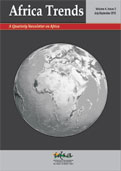China Risen? Studying Chinese Global Power
It would be an understatement to say that there has been a significant rise in the number of academic and media writings on China in the past decade or so. Globally, Rush Doshi’s work has been well received. Thomas Orlik’s book on China’s economy is a significant one, and Kishore Mahbubani continues to challenge assumptions with works like Has China Won? In China’s Good War, Rana Mitter reminds us as to how China uses episodes from history to suit the political objectives of the present era.
- Avinash Godbole |
- March 2022 |











